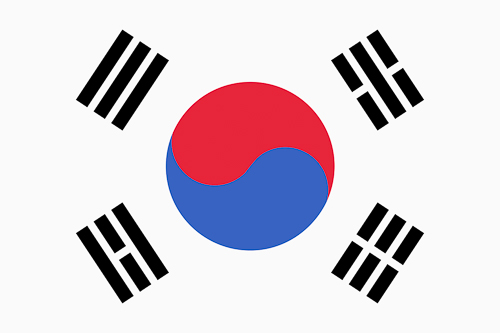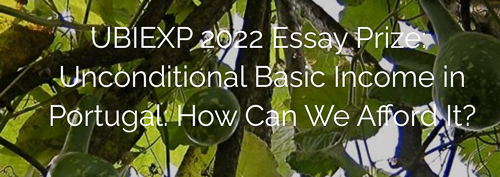
by Guy Standing | Jan 18, 2022 | Featured, Opinion
There are rare moments when a combination of threatening circumstances leads to a wonderful transformation that only a short time before would have been unimaginable. This year may be such a moment. The Republic of Korea could set an example to the world that would bring happiness to millions of Koreans, and to many more around the world.
The risks if politicians are too cautious are enormous. Before COVID-19, the global economy was already heading towards a crisis. For over three decades, more and more of the income and wealth were going to the owners of property, financial, physical, and “intellectual”. The commons, belonging to everybody, were being converted into the source of profits and rents. A new class, the precariat, was growing everywhere, suffering from multiple forms of insecurity, drifting deeper into debt. It was incredibly high debt – private, corporate, and public – that made the global economy uniquely fragile.
Meanwhile, the public across the world were realizing the threat posed by global warming and destruction of the environment. Nothing was being done. If that continues, life for our children and grandchildren will be impaired. And it is clear that mistreatment of nature has helped make this an era of pandemics. The COVID-19 outbreak is the sixth pandemic this century.
In these circumstances, policies that merely try to go back to the old normal will not work. We need a bold transformative vision, one of courage, one designed to give people basic economic and social security, one designed to make the economy work for society and every citizen, not just for the bankers and plutocracy, and one designed to revive the commons and our natural environment.
Jae-Myung Lee is campaigning for the Presidency in the March 2022 presidential election with an exciting and feasible strategy, based on a promise of a basic income for every Korean man and woman, paid equally, as a right, without conditions. It is affordable. What is important at this stage is not to set some ideal amount, but to be on the road towards living in a society in which everybody has enough on which to survive, even if they experience personal setbacks.
What makes the proposal for a basic income so profound is that Jae-Myung Lee has come from a humble background, knowing poverty and insecurity from his childhood. He understands two fundamentals. First, the income of every Korean is due to the efforts of all those Koreans who lived beforehand, and it is based on the commons, nature and resources that make up the country, which belong to all Koreans. Those who have gained from taking the commons, most of all, the land, owe it to all Koreans to share some of the gains. A modest Land Value Tax, or levy, is justifiable and fair, and should help fund the basic income.
He also understands that pollution and global warming must be combated by a carbon tax or eco-taxes. The rich cause more pollution than the poor, the poor experience the bad effects more than the rich, including bad health from exposure to poisonous air. So, the solution must include carbon taxes to discourage global warming and polluting activities. But by themselves such taxes would hit the poor harder, because the tax would amount to more of their income.
The only sensible solution is to guarantee that the revenue from eco-taxes will be recycled through a Commons Capital Fund to help pay for the basic income, as Carbon Dividends. The poor will gain, while society will be on the road to fighting global warming and ecological decay. A basic income will also encourage more care work and ecological work, rather than resource-depleting labor. It will stimulate the desirable form of economic growth.
The second fundamental Jae-Myung Lee and his advisers have understood is that basic security is essential for rational decision-making and mental health. There cannot be individual or societal resilience against pandemics or economic crises unless there is basic security, so that people can behave rationally rather than in desperation. Experiments have shown that a basic income improves mental health and the ability to make better decisions, for oneself, one’s family, and one’s community.
In the Korean edition of my book Plunder of the Commons, I paid respect to the ancient Korean ethos of hongik ingan, which helped found Korea in 2,333 BC. It expresses a historically-grounded wisdom that Koreans should be re-teaching the world in an era of self-centered individualism and consumption-driven “success”. It conveys the sense of not just sharing in benefits of production but sharing in the preservation and reproduction of a sense of community, our sense of participation and our relationships in and with nature. A basic income would pay respect to that ethos. Jae-Myung Lee should be commended for having pioneered it in Gyeonggi Province, and would set the country on a new progressive road if elected President on March 9.
——
A Korean translation of this article was published by Pressian – a political news website headquartered in Seoul, South Korea.

by Peter Knight | Jan 6, 2022 | News
The UBIEXP research group, from the Centre for Ethics, Politics and Society, together with the Portuguese Basic Income association, invite submissions for the international essay prize competition on the following topic:
“Unconditional Basic Income in Portugal: How Can We Afford It?“
The moral objections to UBI and how it could re-shape a society grounded on work are some of the most puzzling but also most important discussions on the topic. However, they are often side-lined with an important instrumental discussion: can we afford an Unconditional Basic Income? Some microsimulations have been conducted, discussing possible cost structures in the UK (Widerquist & Arndt, 2020), and only one study has been conducted for the Portuguese case (Teixeira, 2019). This essay competition aims to fill this gap, and contribute with additional possibilities to answer the question of whether an Unconditional Basic Income is feasible in Portugal or not.
The organizers welcome submissions that focus on discussing possible scenarios for implementing an Unconditional Basic Income, and how much can those scenarios cost (net and gross). They will value submissions who also look into the possible funding strategies, and incorporate them in the analysis.
Deadline for receiving the essays: April 25 2022.
Contributions may be sent as email attachments in word format to: nrbmerrill@gmail.com
The winner of the best essay will receive €750 and the essay will be published in the journal Ethics, Politics & Society.
- The journal EPS welcomes essays of 8,000 words or fewer addressing this topic.
- The essays must be written in English.
- All submissions should be headed “Unconditional Basic Income Prize Essay Competition 2022” (with the author’s name and address given in the e-mail, but NOT in the essay itself).
- Submissions are blind reviewed.
by Guy Standing | Nov 27, 2021 | News
Mark Drakeford, First Minister of the Government of Wales (center), Beth Winter, Labor MP for Cynon Valley, and Guy Standing, co-president of BIEN, at the Labor Party Conference
There will be a basic income experiment in Wales in 2022. The First Minister in the devolved Welsh government, Mark Drakeford, has announced his full commitment to rolling it out in the Spring. Following an opinion poll showing that 69% of Welsh people wanted their government to conduct a basic income pilot, the Future Generations Commission arranged for a background report to be prepared, and at an event at the Labor Party Conference in the seaside town of Brighton, Mark Drakeford said he intended to devote the remainder of his time in office to advancing basic income in Wales. He was sharing the platform with Guy Standing, co-president of BIEN, who is advising the Government and Commission on the design of the proposed experiment. Coordinating the plans is the Taskforce for Tackling Poverty in the Welsh Government, headed by Sarah King.
At present, the main proposal is to give basic incomes to “care leavers”, that is, young people emerging into adulthood from care homes. If restricted to those, it would not be a proper basic income pilot, which requires everybody within a geographic community to be covered. In effect, it would be a test of an individual, unconditional modest cash transfer. Given the UK government’s rigid adherence to strict conditional means-tested benefits, which is causing widespread deprivation and a regime of sanctions, the proposed pilot could still prove valuable. However, discussions on the design, sampling and duration are still ongoing. Everything depends on resource constraints.
by Toru Yamamori | Sep 3, 2021 | Japanese
The original English article here by Sarah Delahaye.
Translated by Ryoko Inoue
Edited by Yoshihiro Norikane and Toru Yamamori
普遍的なベーシックインカム(UBI)が私たちの社会をより良い方向へ変化させてくれるのではないかと考える人が、ますます増えている。しかし、どうすればベーシックインカムを導入させることが出来るのだろうか?最近ドイツでは、ベルリンに拠点を置く「探訪ベーシックインカム」という団体が、大規模な全国キャンペーンに乗り出した。というのも、国家によって費用が負担され、研究者たちが評価に参加する、10,000人規模のUBI実験を始めるためである。これまで50,000人を超える人々が、そのキャンペーンのウェブサイトに登録している。
「探訪ベーシックインカム」は、2月の終わりに「Bring Basic Income To The State」というキャンペーンを開始し、「探訪ベーシックインカム」のウェブサイトやメーリングリスト、ドイツのUBIコミュニティに属する諸団体、ソーシャルメディア、新聞などを経由して、全てのドイツ市民に向けてとある質問を拡散した。
あなたの住む市や自治体に、全国的なUBI実験に参加してほしいですか?
全てのドイツ市民は、「探訪ベーシックインカム」のウェブサイトに登録することで上記の質問に回答することが出来る。「探訪ベーシックインカム」は、住民の少なくとも1%が関心を示すところならどこでも、その市や自治体がUBI実験に参加出来るようにするため、住民投票を始めるようにしている。全ての「実験都市」全体が、世界的にも類を見ないベーシックインカムについての実験室であると考えることが出来る。
科学的アプローチによるUBIに関する貴重な洞察
「探訪ベーシックインカム」の計画によると、10,000人のドイツ市民が2023年から3年間、毎月約1200ユーロのベーシックインカムを受け取ることになっている。この実験では、「探訪ベーシックインカム」はドイツ経済研究機関(DIW)やフライブルク大学ベーシックインカム研究機関(FRIBIS)を含む、ドイツの名高い研究パートナーと連携している。というのも、様々な異なる形での無条件ベーシックインカムにおける結果、受入、実現可能性について分析するためである。また、そこではUBIの資金調達に関する実証的事実についての調査も行われる。
その研究から得られる科学的所見と考察によって、普遍的なベーシックインカムが人々や地域社会に与える影響について、将来的にはるかに議論しやすくなるだろう。理想的に言えば、ベーシックインカムの資金調達が出来るかどうかはもはや問題ではなく、導入を前提に、どのようにしてベーシックインカムを可能にするのかが問題となるのだ。
人々の力がキャンペーンの鍵
「探訪ベーシックインカム」は2019年に、UBI支持者であるJoy Ponader氏とLaura Brämswig氏によって創設された。彼らの目標は、ドイツで初の公的融資によるUBI実験を、ベーシックインカムに熱中していたり関心を持っていたりする全ての人々と共に、始めることである。今回の全国キャンペーンが彼らの初めての試みというわけではなく、以前から「探訪ベーシックインカム」は同様の取り組みをドイツの首都であるベルリンを含むいくつかの州で始めており、ベルリンでは2020年の秋に、地域実験に対して30,000人以上の市民の署名が集まった。
ドイツの市や自治体の住民は、キャンペーンの前線でもあり中心でもある。インターネット上の呼びかけに加えて、市や自治体で、自発的に住民投票を計画するような地元のボランティアチームが形成されるようになるだろう。共創的な参加プロセスの中で、ドイツ市民は実験の企画に参加するようにもなるだろう。この実験方法はこれまでにない革新的なものである。というのも、これまでほとんどの実験は政府か民間組織によって始められていたからである。この「探訪ベーシックインカム」のキャンペーンは、住民投票を用いた公的融資による実験を開始した初の事例である。
もしこのキャンペーンに関心があるようなドイツ市民を知っていたら、この記事もしくは下記にある我々のウェブサイトを共有してほしい。
https://expedition-grundeinkommen.de/!
もっと知りたい場合は、こちらのビデオキャンペーンを見てください。
https://youtu.be/Q2L9gYJOQDg
https://www.youtube.com/watch?v=T3Yi__wWViM
by Toru Yamamori | Sep 3, 2021 | News
Gyeonggi Province, Republic of Korea, has been implementing the Youth Basic Income (YBI) programme since April 1, 2019. The English edition of the report on the project was published in July and can be accessed here.
The following is a short introduction by Ikjin Yu, Researcher at Gyeonggi Research Institute, Dept. of Economic & Social Policy.
Gyeonggi Province, Republic of Korea, has been implementing the Youth Basic Income (YBI) programme since April 1, 2019. In December 2020, Gyeonggi Research Institute (GRI), an affiliated organisation of Gyeonggi Province, published a research report (Korean version), focusing on the first year result of the YBI programme. Recently, in July 2021, GRI has published its English version.
This research report mainly consists of quantitative and qualitative analyses.
For quantitative analysis, the experimental group comprised 11,335 recipients who participated in both the ex-ante and ex-post surveys, whereas the comparison group included 800 respondents who resided in regions other than Gyeonggi Province. There were five categories for analysis such as “happiness”, “health and diet”, “perceptions and attitudes”, “economic activity” and “dream-capital”. The results of the Difference-In-Differences (DID) analysis showed that Gyeonggi YBI positively influenced on their happiness, mental health, workout frequency, diet, perception on gender and equal society, dream-capital, economic activity, time use and so forth.
For qualitative analysis, participants of individual interviews and focus group interviews (FGI) were variously grouped by detailed category. It was conducted on 24-year-olds residing in Gyeonggi Province only who received four rounds of Gyeonggi YBI. A total of 42 participated in the individual interviews and the FGIs. The analysis shows many things regarding Gyeonggi 24-year-olds’ perception of Gyeonggi YBI and basic income itself.
The research report concluded that the Gyeonggi YBI has positively influenced on the 24-year- old youths’ life in various aspects based on the recipients’ experience over the past one year.




